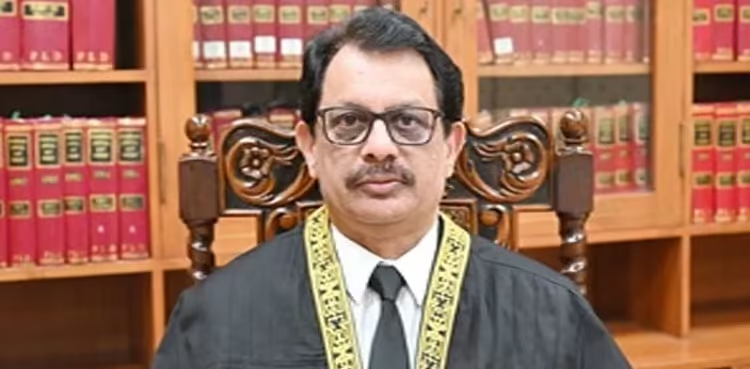Justice Panhwar writes to CJP Afridi, expresses deep concern over 27th Amendment
Another Supreme Court Judge Justice Salahuddin Panwar has written a letter to Chief Justice of Pakistan Justice Yahya Afridi for deliberating the 27th constitutional amendment, stating that there comes a time when silence is not caution but abdication.
In his letter, Justice Panhwar expressed deep concern over the potential impact of the amendment on judicial independence.
“There comes a time when silence is not caution but abdication. I believe such a time may now be upon us,” he wrote.
Justice Panhwar noted that the 27th Amendment “appears to touch the very foundations upon which the edifice of our judiciary rests.”
“It speaks of changes that may bring the executive and legislature into areas long reserved for judicial independence,” he cautioned.
Emphasizing the sanctity of an independent judiciary, Justice Panhwar stated that judicial independence “is not a matter of privilege; it is the very condition upon which liberty itself depends.”
“If the judiciary is not free from fear, influence, or control, then the rule of law becomes but a phrase—hollow and without breath,” he warned.
Referring to the Constitution, he reminded that judicial independence is not merely symbolic.
“Our Constitution has declared this independence. These are not ornamental words — they are living guarantees for a people who have suffered too long under arbitrary power,” he wrote.
Justice Panhwar expressed concern that the proposed amendment could unsettle the delicate balance of powers envisioned by the framers of the Constitution.
“It may touch upon the security of tenure, the composition of benches, the appointment and removal of judges, or even the financial and administrative autonomy of our courts,” he stated.
He further warned that undermining any of these pillars could weaken the entire judicial structure.
“Each of these is a pillar — weaken one, and the structure trembles. Allow encroachment today in the name of efficiency, and tomorrow independence will be lost in the name of expedience,” Justice Panhwar observed.
He cautioned that even the perception of interference could erode public trust in the judiciary.
“Even the appearance of interference is enough to erode public confidence, which is the very soul of justice. Once lost, it cannot be summoned by decree or proclamation,” he said.
Concluding his letter, Justice Panhwar called on fellow judges to collectively defend the judiciary’s autonomy.
“When the fortress of judicial independence is under question, it is for judges collectively to stand watch. The people do not look to us for silence — they look to us for clarity, not political, but constitutional,” he asserted.

